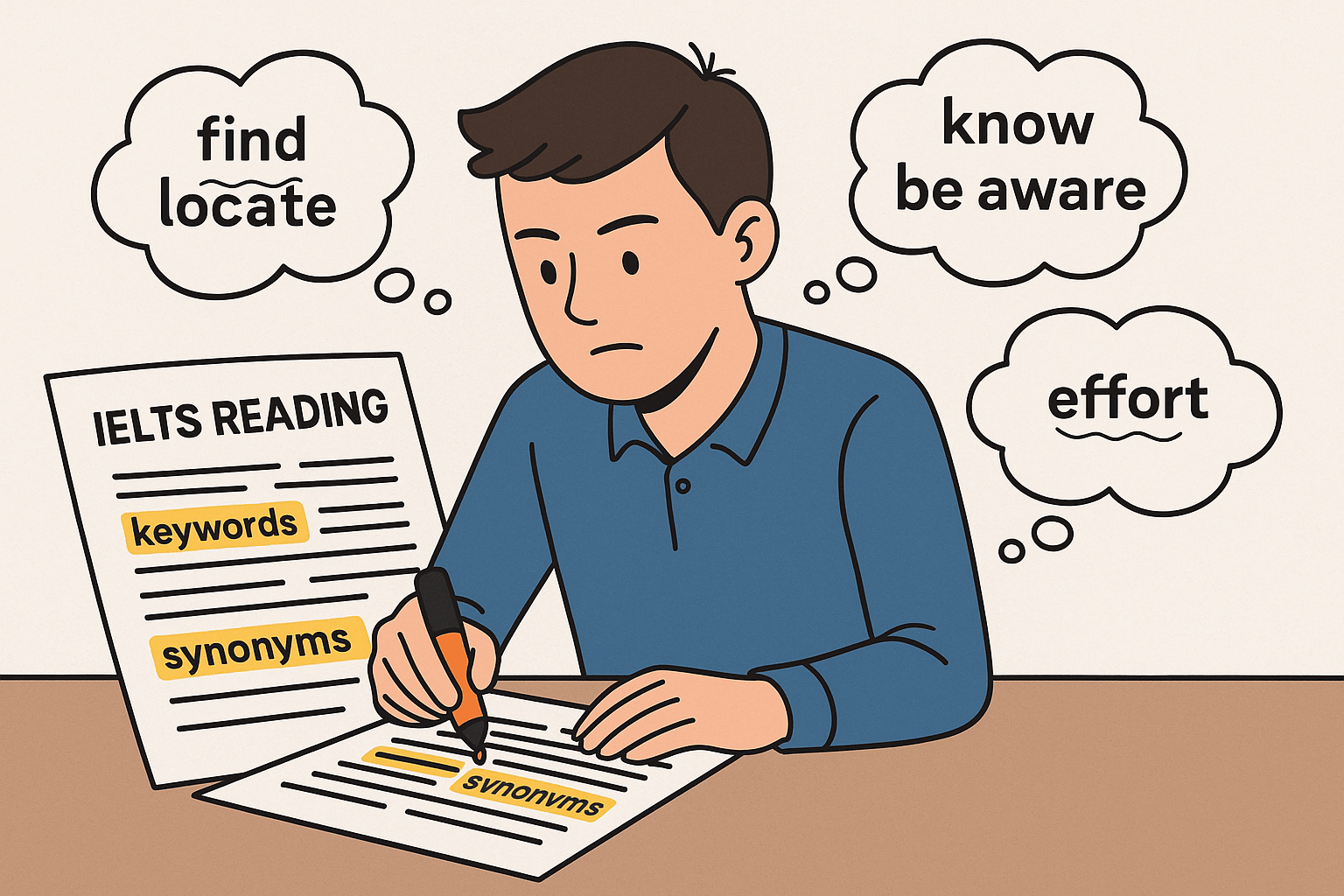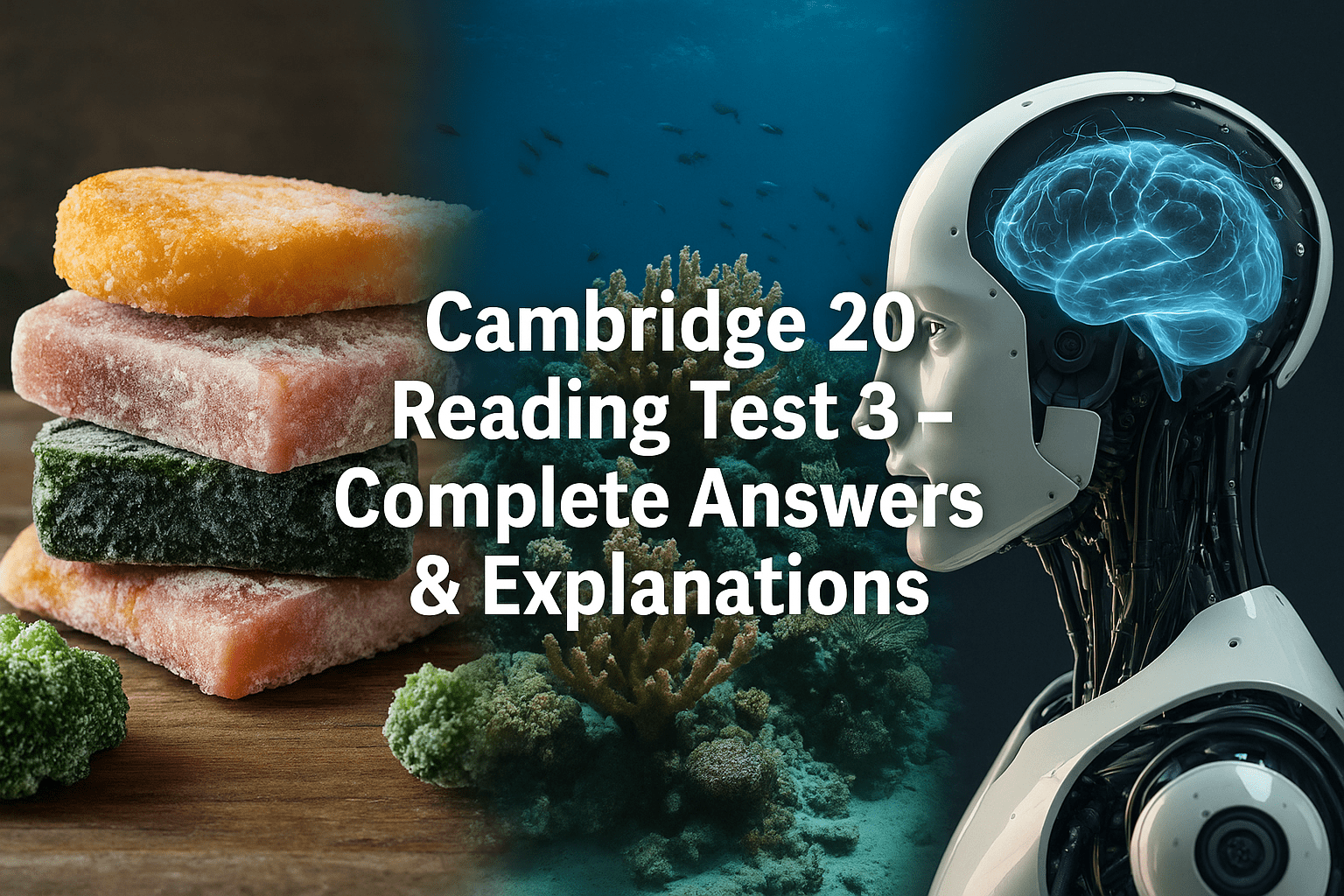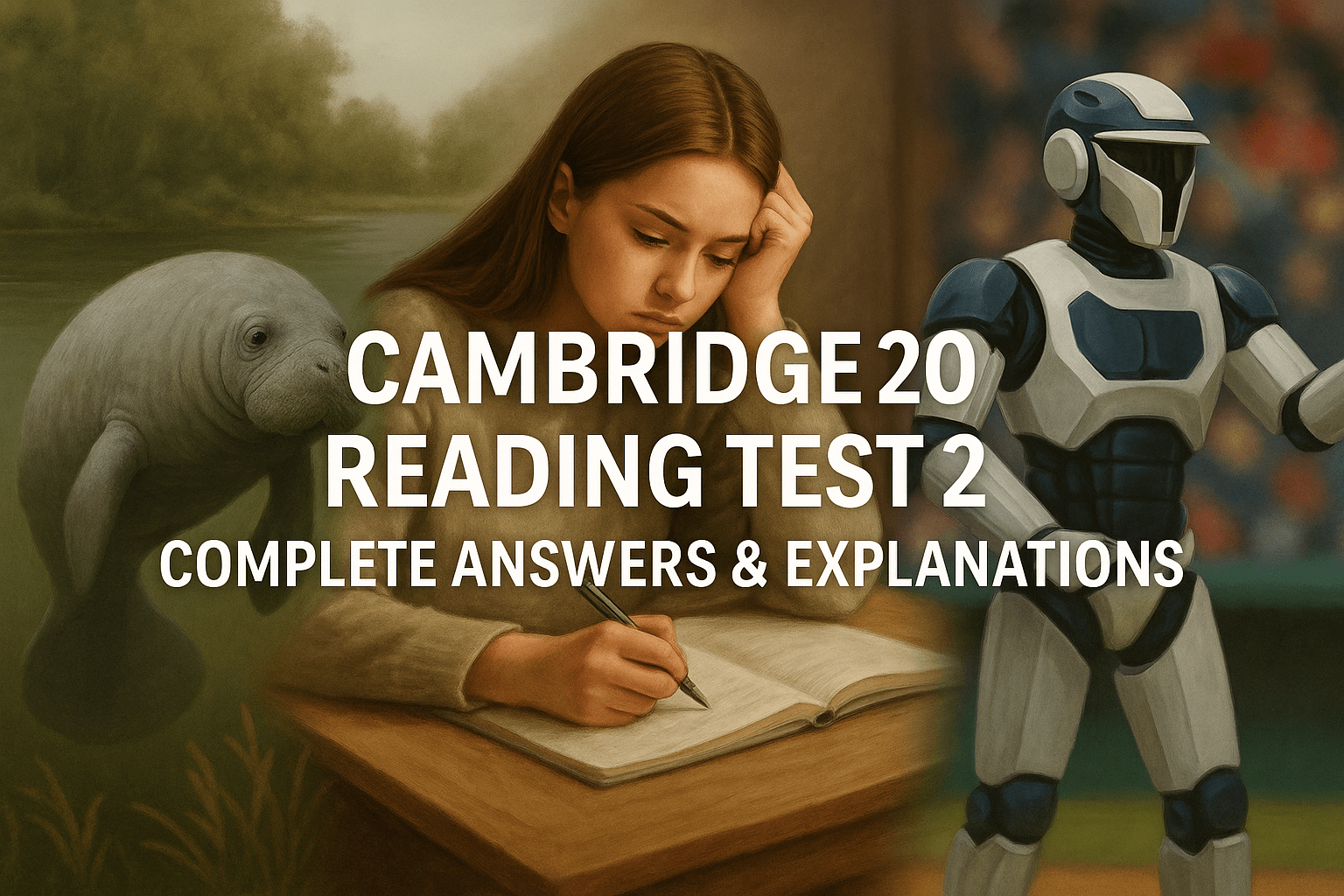As an international IELTS teacher who has guided students from over 30 countries, I’ve seen one skill consistently separate Band 6 candidates from Band 8+ achievers: IELTS reading paraphrasing. Recognising paraphrased words and phrases in the reading passage and the questions is the secret to finding correct answers and avoiding common traps.
I’ve taught hundreds of learners who read quickly but still miss answers. When I check their mistakes, it’s often because they were searching for exact words instead of identifying paraphrases or synonyms.
Why Paraphrasing Matters in IELTS Reading
In the IELTS Reading test, the examiners rarely copy the exact words from the passage into the question. Instead, they paraphrase—they use synonyms, changed word forms, or rephrased ideas.
For example, if the passage says:
“Children in rural areas walk long distances to attend school.”
The question might be:
“Some students travel far to reach educational institutions.”
If you only search for “walk long distances” in the text, you’ll likely miss it. But if you understand paraphrasing, you’ll immediately connect “travel far” with “walk long distances.”
For a full guide to how IELTS Reading questions are structured and why paraphrasing is critical, check our IELTS Reading Question Types Guide.
Common Problems My Students Face with Paraphrasing
Over the years, my students have shared similar challenges:
- Searching for exact words – They scan for the same words as in the question and skip the answer if it’s rephrased.
- Weak synonym knowledge – They don’t recognise that “purchase” and “buy” or “elderly” and “senior citizens” mean the same thing.
- Confusion with negative forms – When the passage says “not all,” and the question says “some,” students get tricked.
One of my learners in Vietnam kept scoring 5.5 in Reading because she only hunted for identical words. Once we practiced IELTS reading paraphrasing and built a strong vocabulary of synonyms, she reached Band 7.5 in just six weeks.
How to Master Paraphrasing for IELTS Reading
1. Build a Synonym Bank
IELTS reading requires a strong vocabulary of synonyms. For instance:
- Increase → Rise / Growth / Surge
- Dangerous → Risky / Hazardous / Unsafe
- Because of → Due to / Owing to
I encourage students to create a personal synonym notebook. Each time you encounter a new word, add at least 2–3 synonyms.
You can explore IELTS Reading Vocabulary for Band 7–9 to strengthen your synonym bank.
2. Recognise Different Paraphrasing Patterns
IELTS doesn’t only replace words—they restructure sentences too. Watch for these patterns:
- Word-level synonyms: “Children” → “Youngsters”
- Phrase-level changes: “Caused by pollution” → “A result of polluted air”
- Passive to active voice: “The project was completed by the team” → “The team completed the project”
- Numerical expressions: “Two-thirds of the population” → “About 66% of people”
Mastering these patterns makes you confident even when the wording changes completely.
3. Practice Scanning and Linking Ideas
To find the correct answer efficiently:
- Underline keywords in the question.
- Think of synonyms for each keyword.
- Scan the passage for these synonyms or related ideas instead of exact matches.
One of my Saudi students once struggled with True/False/Not Given questions. After practicing this three-step IELTS reading paraphrasing strategy, his accuracy jumped from 50% to 85% in mock tests.
If you want step-by-step strategies to move from Band 6 to 9, explore our IELTS Reading Skills for Band 7–9.
4. Avoid Common Traps
- Partial matches: Words may look similar but the meaning changes. E.g., “Few” ≠ “A few”.
- Negatives and opposites: “Not all” can paraphrase to “Some”.
- General vs specific: “Fruit” ≠ “Apple”.
IELTS test creators often use these tricks to confuse candidates who only focus on single words instead of full meanings.
Quick Practice Exercise
Passage:
“Scientists predict that global sea levels will rise significantly over the next century due to melting polar ice caps.”
Question:
“Experts expect major ocean level increases in the future because of disappearing ice sheets.”
Correct Answer: True.
Why? Recognising paraphrasing: Scientists → Experts, predict → expect, next century → in the future, melting polar ice caps → disappearing ice sheets.
Conclusion
In IELTS Reading, paraphrasing is the ultimate key to accuracy. When you train your brain to spot synonyms, rephrased sentences, and implied meanings, you’ll stop missing answers that are right in front of you.
My advice: practice daily, maintain a synonym notebook, and analyze your mistakes after each test. With consistent effort, you’ll notice your scores rise just like many of my students did.
For official information about the IELTS Reading test, you can also check:
FAQs About Paraphrasing in IELTS Reading
1. Do I need to know thousands of synonyms to score Band 8 in Reading?
No. Focus on common academic synonyms and words frequently used in IELTS passages. Consistency matters more than quantity.
2. How can I quickly identify paraphrased sentences?
Look for key meaning words in the question, think of 1–2 synonyms for each, and scan the passage for similar meanings, not exact matches.
3. Does paraphrasing help in Listening and Writing as well?
Absolutely. Recognising paraphrased words boosts Listening accuracy, and using your own paraphrases improves Writing Task 2 scores.
4. Where can I practice IELTS reading paraphrasing exercises?
Try mock tests and exercises that focus on synonym recognition and sentence rephrasing, or visit our guide on IELTS Reading Skills for Band 7–9.





